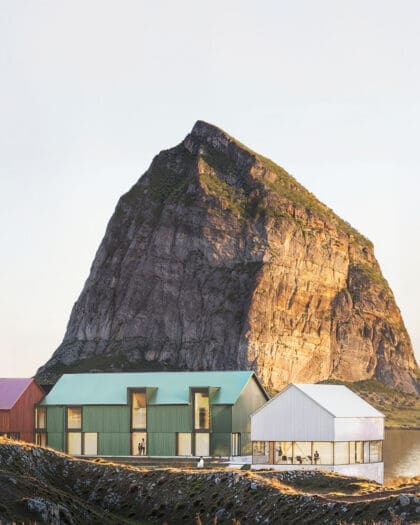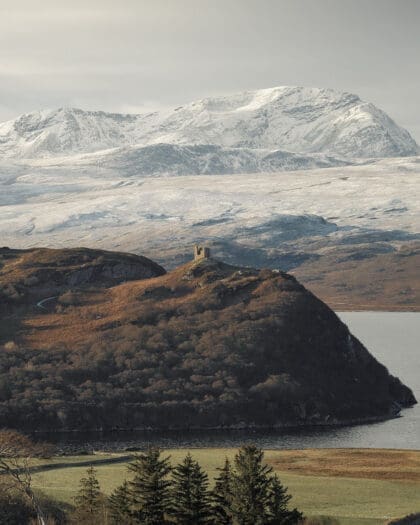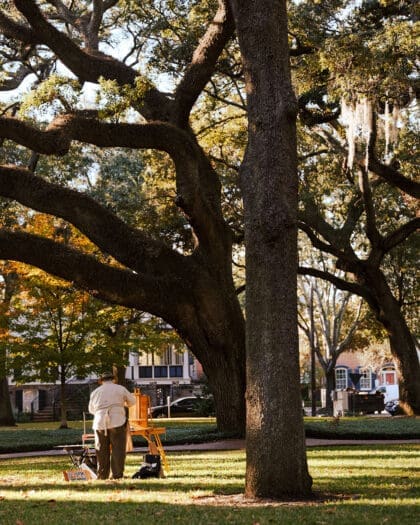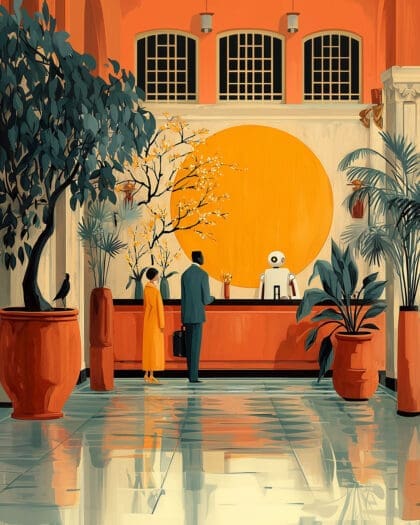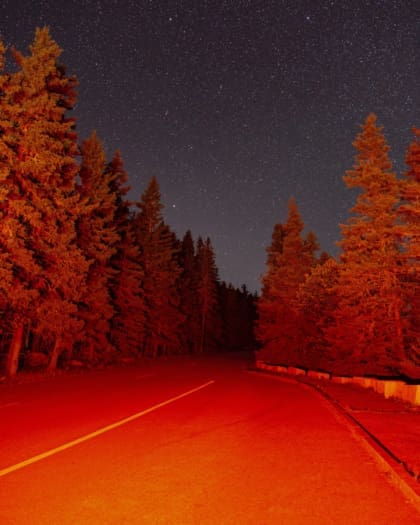
In search of Stephen King in New England, US
A spooky road trip to the weirdest corners of New England, immortalised in the works of horror writers Stephen King, Shirley Jackson, and HP Lovecraft
It is 8am on a winter morning, and frozen light drifts over the turrets of 47 West Broadway, an ersatz gothic pile east of downtown Bangor, Maine. The house would appear unremarkable if it wasn’t for its hulking size and the wrought-iron bats twisted into the gates.
Ankle-deep in snow, we take a few lingering selfies in the hope that the occupier might appear, then duck back into our rented Chrysler and that’s that. To most, these few minutes would be anticlimactic in the extreme. To us, it’s the culmination of an oddball cultural pilgrimage; a week in deepest New England that would quietly upend my preconceptions of ‘meaningful’ travel.
In March 2018, two friends and I flew to Boston, Massachusetts, with the sole mission of renting a car and tracking east to Bangor in Maine, home of totemic horror writer Stephen King (the bats were his). King was a neat catalyst; a writer who blends putrid schlock with a palpable sense of place, and whose evocative channelling of his home state practically makes his novels workable gazetteers (his seminal literary-manual-autobiography On Writing throws up 43 mentions of Maine, Bangor and New England alone). We were also pumped after reading IT, a disgusting opus set in the Bangor proxy of Derry.
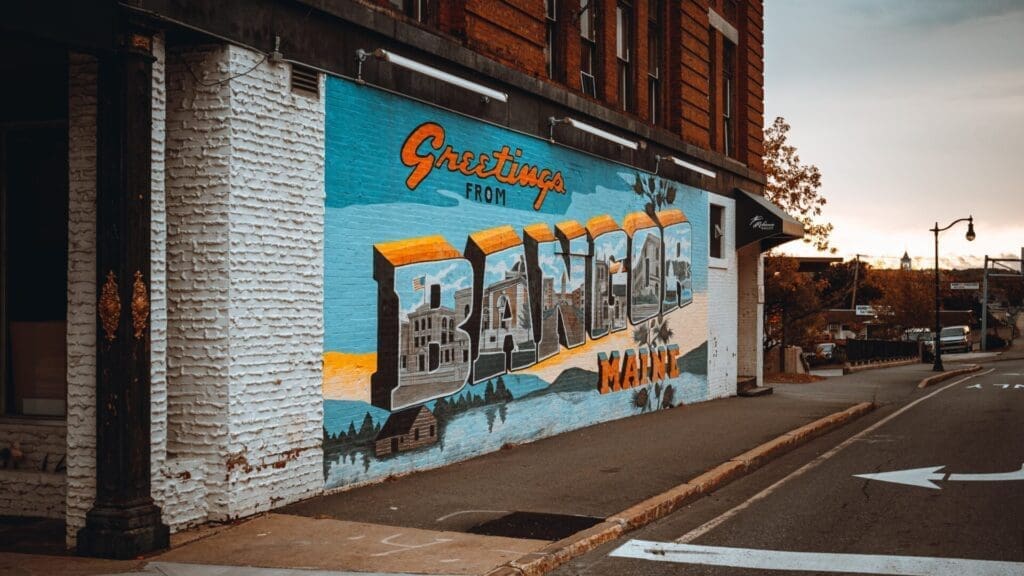
King isn’t the only horror impresario to be inspired by New England’s genteel sprawl. One-time Bostonite Edgar Allen Poe kickstarted the region’s tradition for gothic horror (which would hit an apex in Shirley Jackon’s 1959 The Haunting of Hill House, reimagined by Netflix in 2018) and Cthulu creator HP Lovecraft reimagined various bits of Rhode Island and Massachusetts in his own lurid vision. In the present, Paul Tremblay grasps for King’s mantel with his tales of localised terror, while JW Ocker’s 2010 New England Grimpendium: A Guide to Macabre and Ghastly Sites reveals a smorgasbord of unnatural IRL locales for the fear-inclined. Almost anywhere you look, there’s something to set the skin crawling.
Our itinerary was skeletal. We’d planned to make a brief day’s detour south to Providence, Rhode Island, before tracking back northeast along the coast, through Massachusetts and New Hampshire, into the lesser-populated wilds of Maine. We’d book beds on the hoof (a benefit of travelling in the region’s freezing low season), keep a loose agenda, and shoehorn as many impromptu detours as possible. A liberated and reactive way of travelling that, post-pandemic, seems a distant novelty.
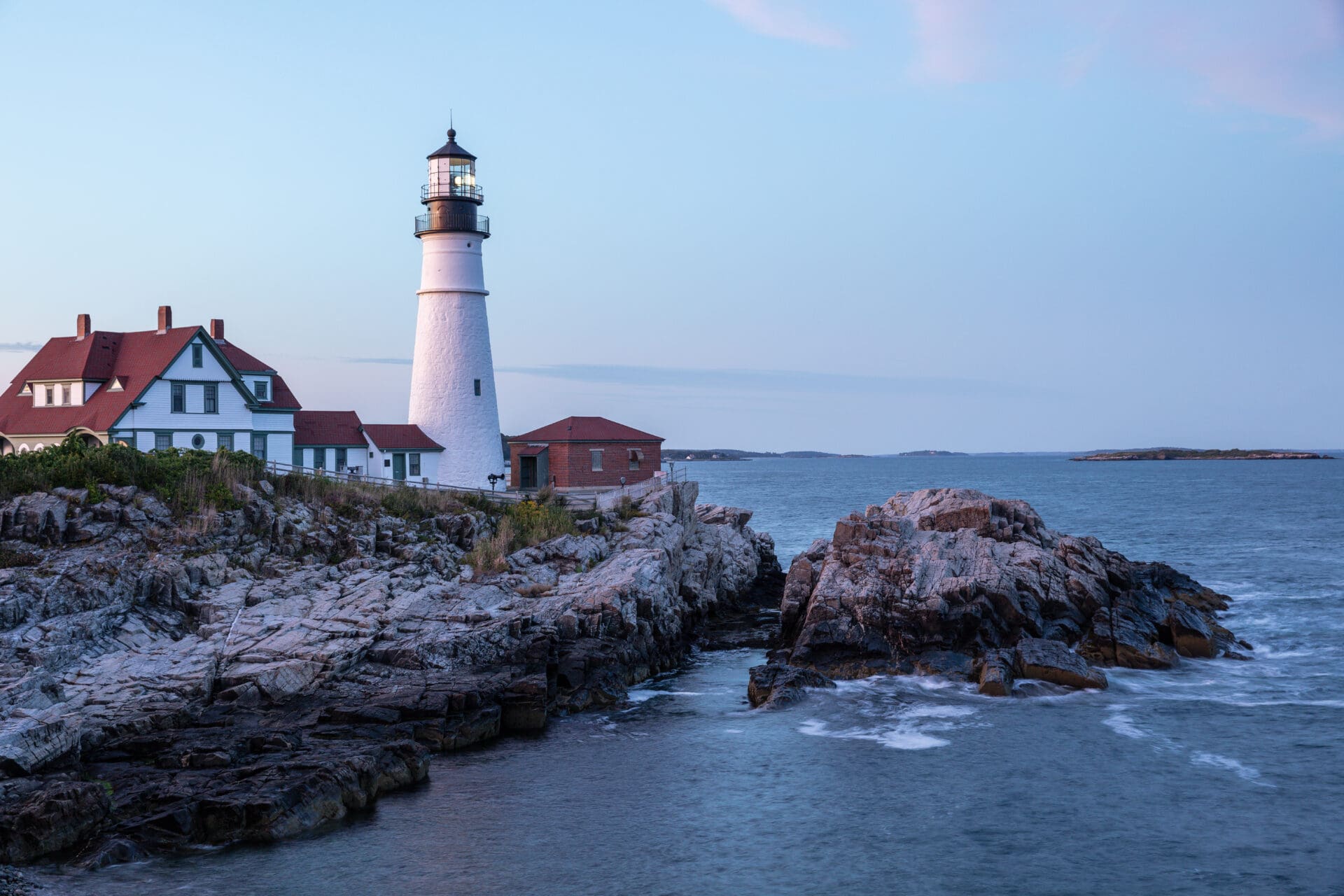
Reaching Bangor provided an existential narrative, of sorts. But, testament to America’s characteristic melding of the batshit and mundane, the following week was a surreal mess of half-planned and spontaneous encounters; a genuinely odd trip through the shadowlands of an outwardly genteel region. In short:
We arrive in Boston to the Omni Parker House, the US’s oldest operating hotel, supposedly haunted by the ghost of Dickens. A histrionic CNN report warns that an incoming bomb cyclone would “change the face of the East Coast forever”. The next morning’s sheet rain is so unrelenting it literally dissolves all the banknotes in my jacket pocket. Through the squall, we head to Lizzie Borden’s ‘murder house’ in Fall River – site of a double hatchet slaying that caused media paroxysms in 1892 – and then south to Providence.
The former home of cosmic horror pioneer HP Lovecraft, Rhode Island’s capital is a binary of post-industrial wasteland (into the depths of which we schlep to the ‘Big Blue Bug’: a giant cerulean termite on top of an autoshop) and, in the collegiate streets around Brown University, classically academic. Various addresses around College Hill and the wider city were folded into Lovecraft’s pulpy tales – not least The Case of Charles Dexter Ward, his overarching love letter to the city. ‘I AM PROVIDENCE’ states the inscription on his headstone in nearby Swan Point Cemetery, tellingly.
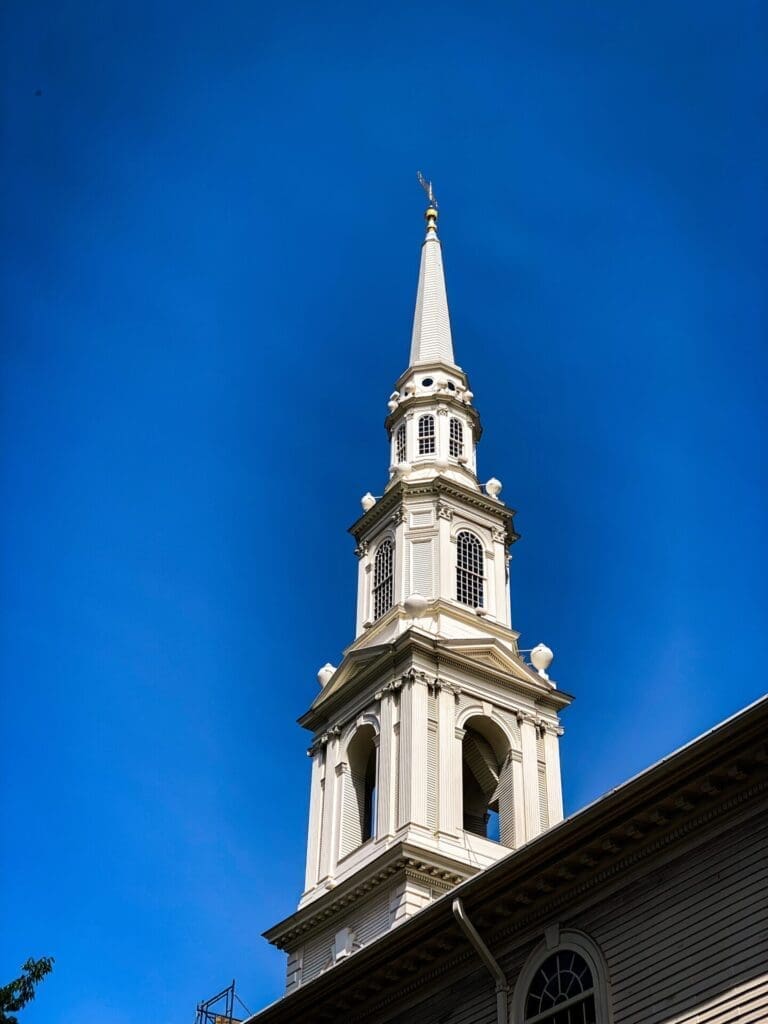
Seventy-five miles north, to Salem. Massachusetts’ witchy nexus is hokey in the extreme, evinced in a walking tour led by a grimy wisp of a goth that starts with a sword-waving ceremony in a magical tat emporium.
We swing by Hawthorne’s eerie ‘House of Seven Gables’ before heading into the gloaming and another 100 miles to the muted, lighthouse-dotted fishing town of Portland, Maine. Cue a day spent demolishing crab omelettes, meeting a local optometrist (licence plate: ‘DR EYE’), and locating the world’s foremost (only?) International Cryptozoology Museum, a trove of sasquatch paraphernalia and other confected horrors. A swift amble to the town’s squat ‘Bug Light’ lighthouse and we’re on course to Bangor: true King country and into which we’re greeted by the technicolour neon beacon of ‘Dave’s Movie Centre and Romantic Supermart’.
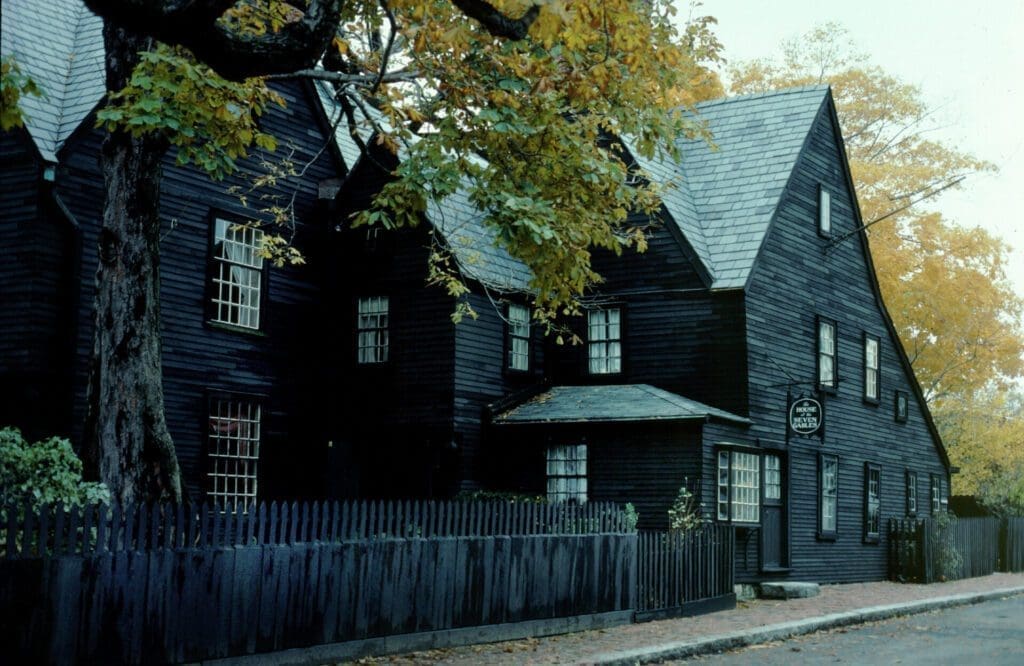
At dawn: a beeline for King Towers. Stephen’s a no-show, but the quest is complete. We visit the King-centric Gerald Winters & Son bookstore – flood-knackered, with sopping second editions of Pet Sematary draped on every surface – before ticking off a couple of thinly veiled IT locales in the town’s enormous Paul Bunyan statue and the Kenduskeag Stream banks that became the book’s Barrens. As the sun begins to drop, we set our GPS to the archipelago of Acadia National Park, the rocky coves of Mt Desert Island glowing grey-purple in the dwindling winter light. It’s truly beatific.
Sights aimed back at Boston, we retrace the coast south, by way of Kennebunkport (home to the Bush family compound and a ghost town of waterside boardwalks, out-of-season tarot readers and saltwater taffy hawkers) and Biddeford (to the wonderful 50s-throwback Palace Diner and a staggering tuna melt). A planned detour to macabre illustrator Edward Gorey’s old house on Cape Cod is written off, as the bomb cyclone has flooded the peninsula. Instead, we descend to a Cambridge dive bar to see out the trip playing shuffleboard as snow settles on Harvard’s Grecian colonnades.
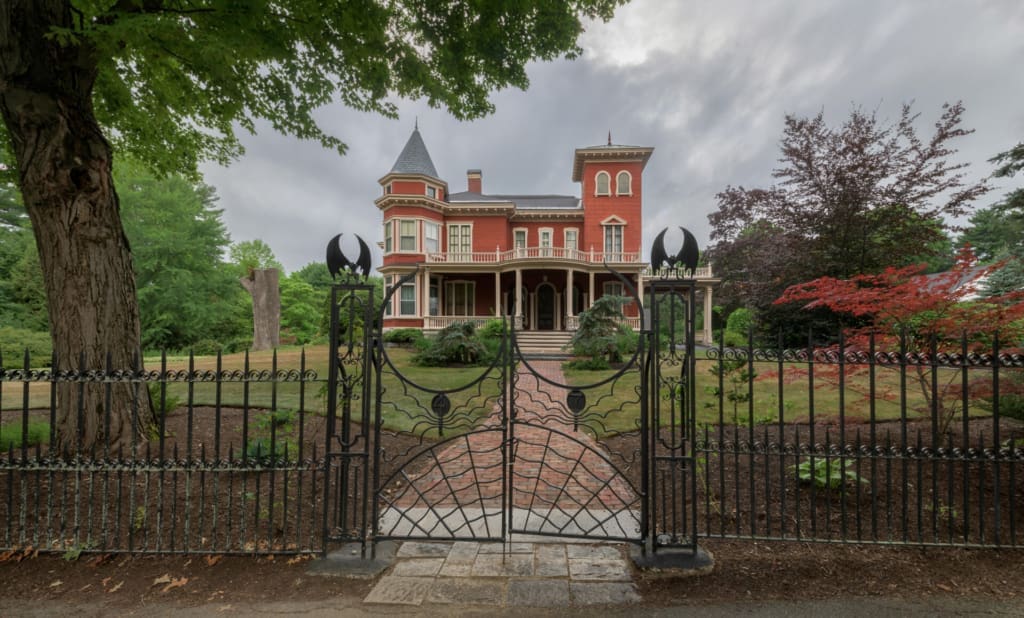
It was a wistful end to a singular trip, but what’s chimed with me most in the years since was the overarching realness of the thing. ‘Authenticity’ is considered the holy grail in travel. A metric of success held in regard particularly by Gen X-ers and Millennials that’s practically impossible to attain, and otherwise tends towards superficial immersion and chaperoned escapism: ayahuasca ceremonies; guided treks; street-food tours; trawling backpacker networks, and so on.
Paradoxically, seeking out the embellished real-world locations in King’s mind and, by extension widening the net to any ancillary weird shit we could find along the way, felt like a portal into a purer, more subjective iteration of the place. By looking through the eyes (and pages) of a writer whose canon hinges on evoking an uncanny approximation of New England, another world lurking beneath the benign facade was revealed. The season helped, admittedly; the turning twilight of late winter rendering the landscape into a haunted wash of greys and browns at odds with its more fiery fall colours.
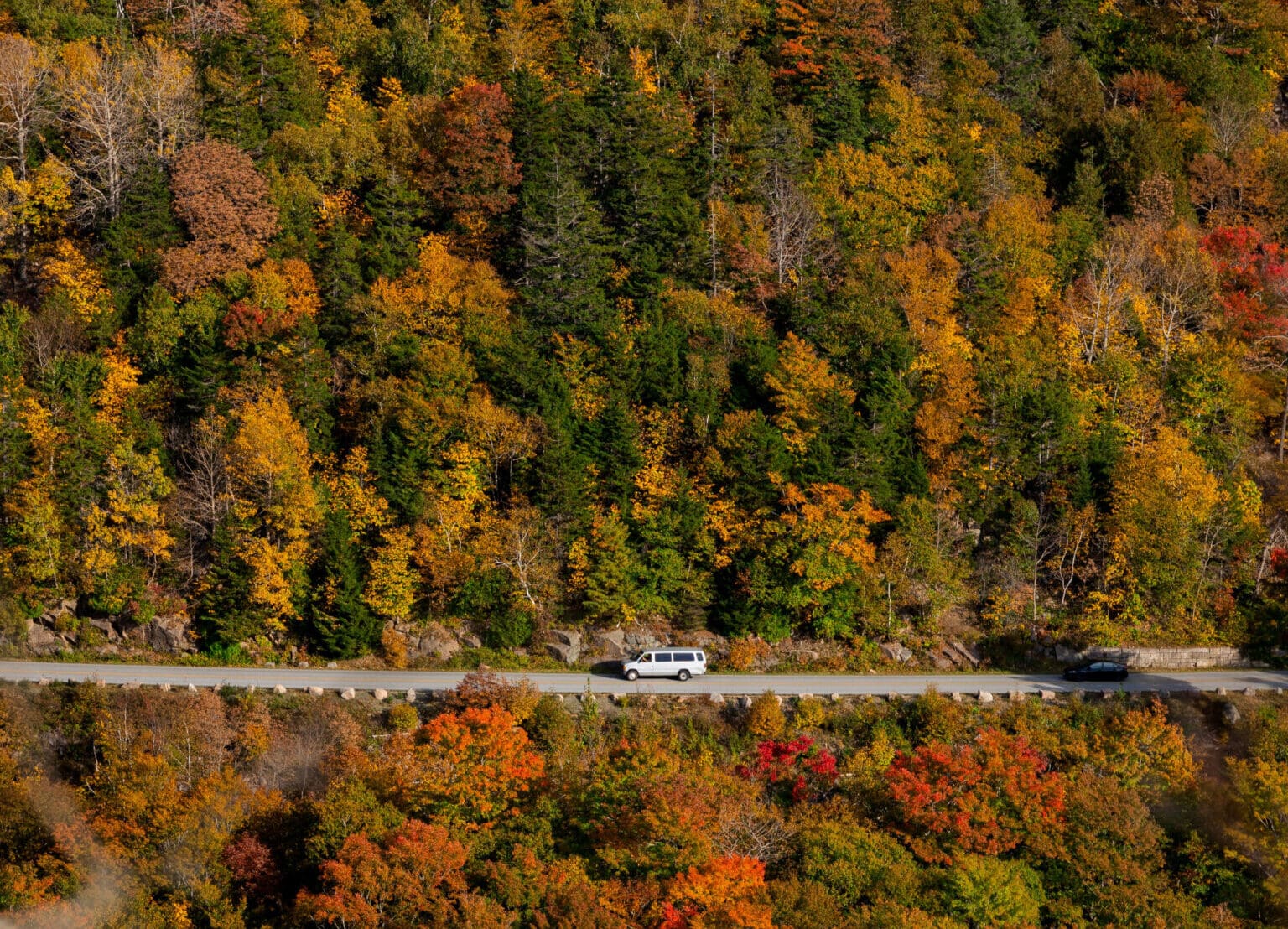
Crucially, this approach gave meaning to the mundane. Without context, the things we sought out were humdrum. By viewing them through an alternate lens they became loaded with personal significance. It’s not even that King is particularly esoteric. Personal taste (ie. years of reading Atlas Obscura and the Fortean Times) might explain the delight in encountering decrepit lighthouses and monolithic termites, but framing an itinerary around a set of blockbuster novels is hardly outré. Rather, it became an idiosyncratic way of planning a trip with real, intimate resonance, the peculiar details of which we still pore over years later.
It feels cynical and a tad exploitative to relentlessly view the world through the prism of Covid. But now, semi-exiting two years of actual plague, where a watermark of ‘success’ was avoiding crippling ennui, it’s hard not to prescribe new meaning to the affecting moments that played out before. And those strange, grey days in Maine, exploring the macabre with my closest friends, feel ever more halcyon.


